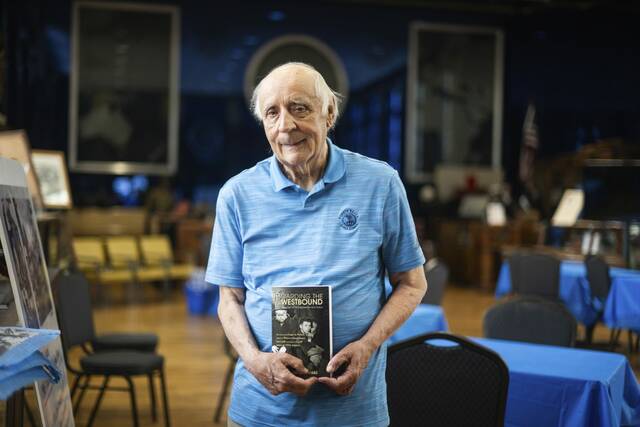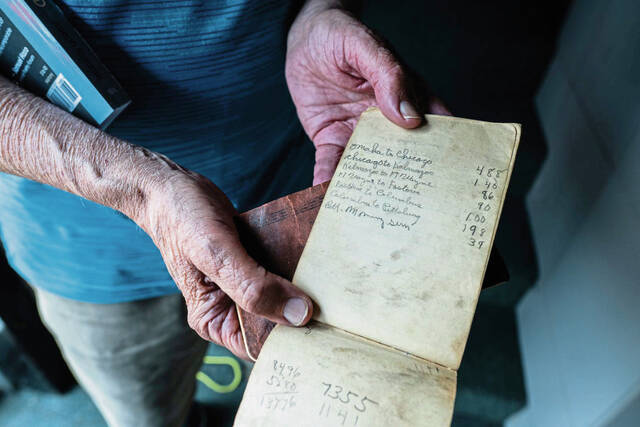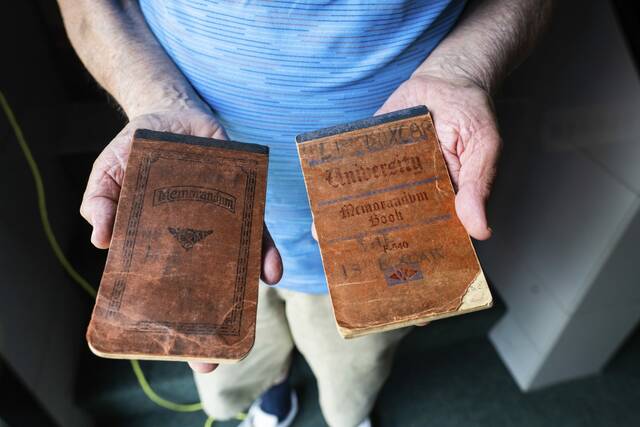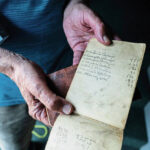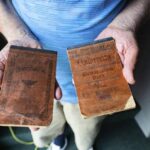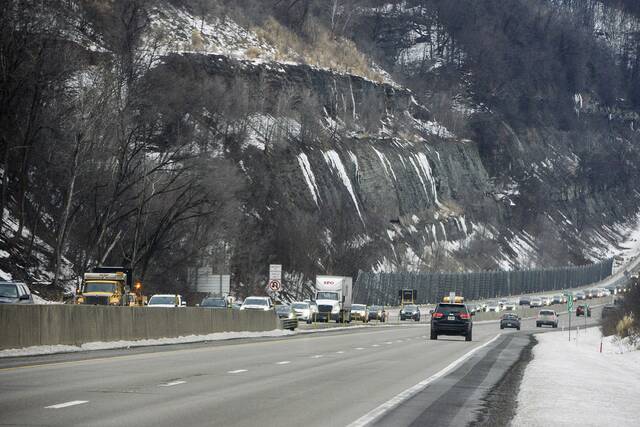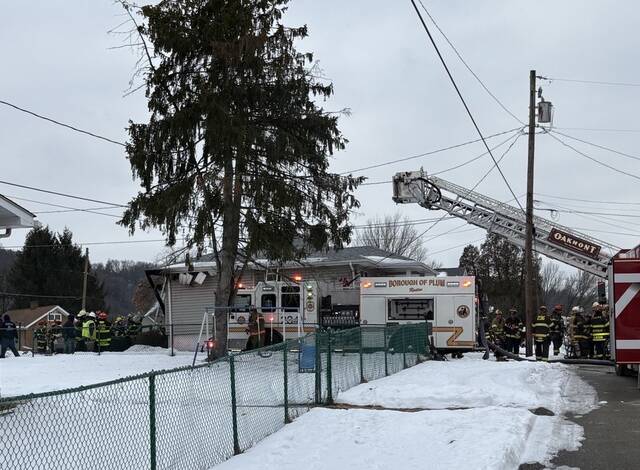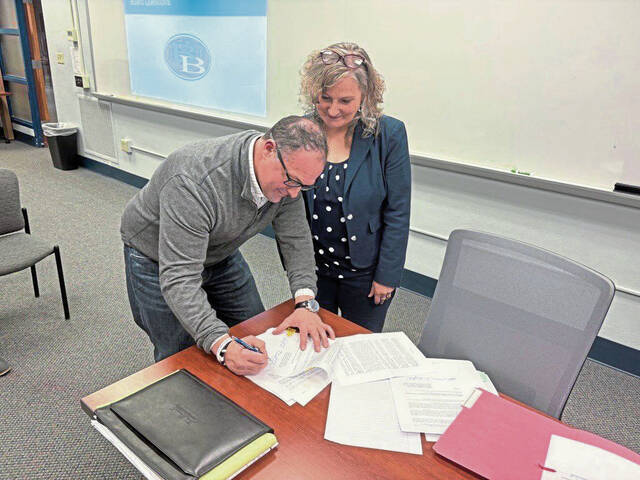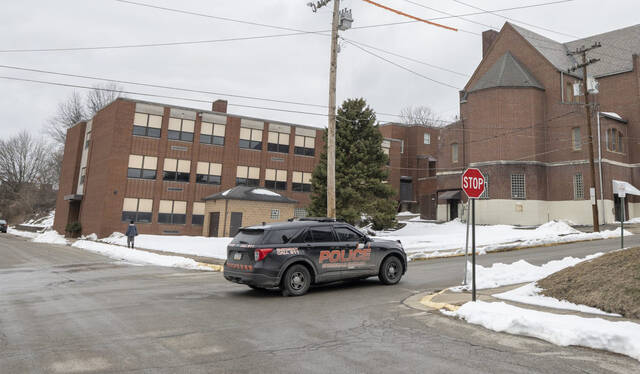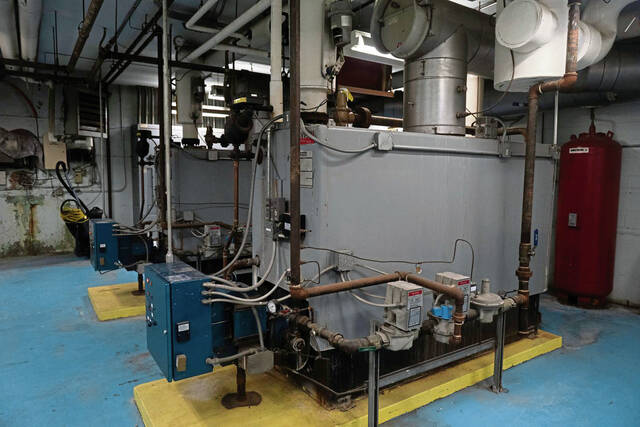Joseph Szalanski set off to tour the country in 1932 with 48 cents in his pocket.
The 22-year-old from East Vandergrift, who immigrated from Poland to America as an infant, was determined his future wouldn’t be forged in a steel mill.
Instead, he traveled as a hobo, hopping freight cars from New England to California.
“It was the Great Depression, and nothing was going on,” said his son, Joe, 85, of Vandergrift.
“Everyone else was sitting around moaning about it, but my father did something. He turned one of the worst times into one of the best times.”
The 13,700-mile journey was documented in daily journals sent home to Westmoreland County.
Joe Szalanski detailed his father’s adventures in a book, “Boarding the Westbound,” released in 2011 by Word Association Publishers in Tarentum. The book has been followed by a new documentary by Battle of Homestead Foundation member Pauline Greenlick, which will premiere at 2 p.m. Sunday at the Alle-Kiski Heritage Museum in Tarentum.
Titled “A Hobo in the Great Depression,” the 75-minute film features original music by Mon Valley resident Mike Stout and narration by Mike Firek, a member of the Freeport Theatre Festival.
The event is free and open to the public. Szalanski and Greenlick will both be there to talk with audience members.
Charles McCollester, a retired professor of industrial and labor relations at Indiana University of Pennsylvania, called the journals a poem to the working-class dream.
“It’s a story about making the very best out of what you have been given,” McCollester said. “To plunge into the unknown and feel the pulse and life of a nation in crisis, to not be paralyzed by hard times, but to persevere, learn and grow. This is a very timely story for young people to not sit still and mourn or complain but to take another richer, deeper path of resistance to one’s seeming fate.”
Museum Curator Jim Thomas said the story will resonate with many in the Alle-Kiski Valley.
“If you were an immigrant, you went and got a job in the mill when you turned 18,” he said. “This guy rebelled. He wanted something different.”
Szalanski said the notes his father sent home during his travels through 142 cities were surprisingly detailed.
“He didn’t just pass through all 48 states, he slept there and ate there, usually working for whatever he got,” Szalanski said.
“He met a lot of people who fed him along the way, but he had to chop wood or wash windows. That was an era where you didn’t get anything for free.”
Szalanski said his dad included the gritty details of hobo life with the attitude that “whatever happened was part of the adventure. If the railroad cops were hard on him, so be it.”
When Szalanski’s father got kicked out of a boxcar in the Mojave Desert, he had to walk 22 miles before jumping on board again.
In all, the journey lasted four months. He faced illness, freezing weather and other dangers.
After Joseph Szalanski returned home, he married and started a family. To support the family, he went into the steel industry, working at Apollo Iron and Steel. He died in 1940 when crushed under steel while building the Irvin Works plant in Dravosburg.
“The thing I liked is that he tried to turn his situation around,” said Szalanski, who was just 2 months old when his father died. “He didn’t want to go work in the mill so he hit the road and did a hard thing. He had no regrets.”


